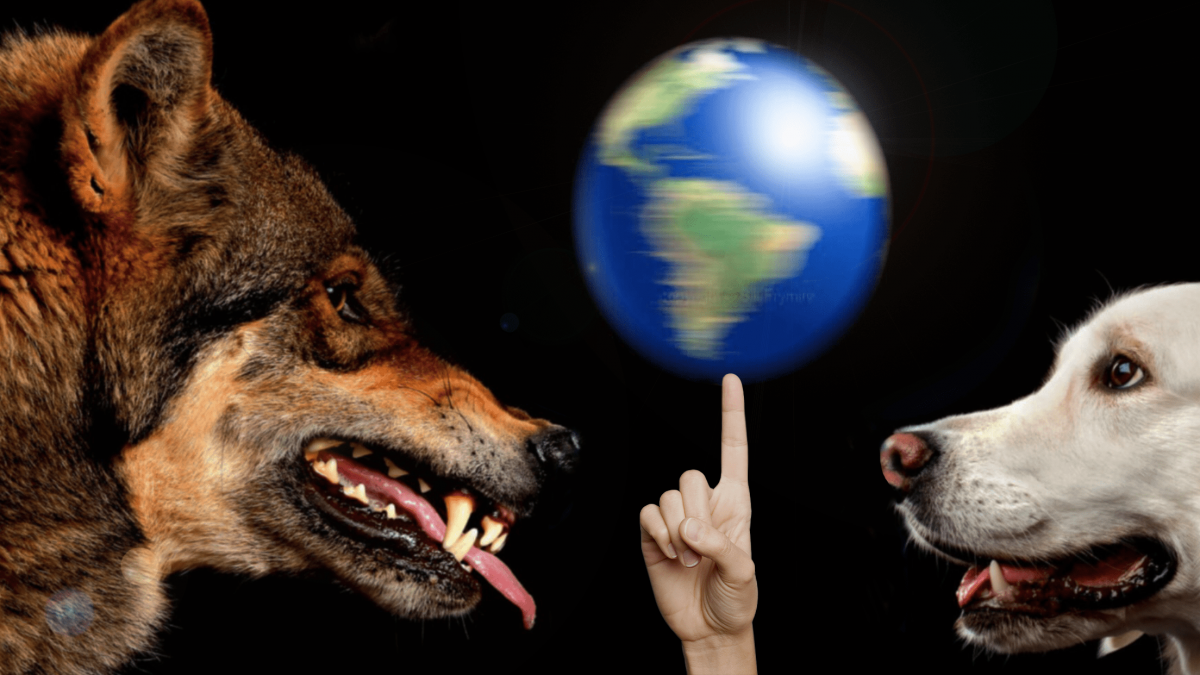By Bill Kelly, CEO, CAIA Association
While this week’s post may harken to a certain book written by John Coates, there is a different play on the metaphor at work here, with our wheezing planet spinning in the center.
Consider the wolf: powerful, aggressive, and risk-seeking. The wolf is also highly intelligent, hunts in packs, and is a relentless and efficient killer of lesser prey. The dog on the other hand is very social, loyal, and eager to please. While parallels to capitalists, investors, and the less sophisticated market participants could easily be drawn here, it is the hour before daybreak where these traits become indistinguishable. That hour is upon us and it is time for all species to take a stand and feel inconvenienced about a shared burden to address a problem that is simply not going away. Short-term risk-taking needs to cede ground to long-term risk awareness, because our next dawn harbingers a very dangerous future for our planet.
The topic of ESG, and more specifically climate, got a lot of play last week at the annual Cayman Alternative Investment Summit (CAIS). The opening session coincided with the release of a new report from KPMG and Create-Research entitled Sustainable Investing where CAIA Association and AIMA, along with their members, played important and contributing roles. An impressive body of research for sure, but the synchronous intersection of this report with a gathering of global leaders in both the LP and GP space, along with leading scientists, academics, strategists, and philanthropists, brought these issues to that fateful hour before dawn during this summit; the hour where we all look more alike, and even seemingly more determined, to Carpe the new Diem… together.
Consider this from the Sustainable Research report: 85% of the surveyed hedge fund managers feel that it is the LP driving demand for ESG-oriented products, but only 15% of these same GPs indicated that they have embedded ESG factors across their strategies. The LP/investor certainly shows a larger commitment to ESG but when 75% of this cohort indicates that it is too early to decide whether sustainable investing delivers double bottom-line outcomes, much still needs to be done in this “final” hour.
Ambiguity has never been a key take-away from CAIS and Jeremy Grantham gave the delegates no place to hide during his “The Race of Our Lives” session. His impassioned and informed views were compelling, frightening, and exceedingly uncomfortable for those amongst us who feel that this is someone else’s problem to fix. While this recent article is emblematic of the points he made, it was his analysis of global insured losses from wildfires that seared. In the 1980’s global insurance claims in this space were negligible. The next two decades showed increasingly higher trends, but never produced a total 10-year loss experience cresting $10B. In the decade just ended the formal tally stands at over $40B and those numbers have only been reported through 2018. The recent devastation in Australia alone will mark this decade above $50T once it is priced in too. These facts alone make it very hard to write Jeremy off as a cranky capitalist in the autumn of his years.
There has been a lot of talk, along with some compelling research and ongoing digitization of data, about how to better measure, disclose, and price the risks associated with ESG and climate. That is a good thing especially at a time when we talk (a lot) about weaning ourselves from fossil fuels, but seem to ignore the sizeable financial risks of stranded assets and persistently rising global temperatures.
It is the stakeholder (read: every one of us) who must dare and care to make a sustainable difference; if you are not feeling inconvenienced you are not doing enough. This (h)our is now upon us.
Seek diversification, education and know your risk tolerance. Investing is for the long term.
Bill Kelly is CEO of CAIA Association. Follow Bill on LinkedIn and Twitter.




